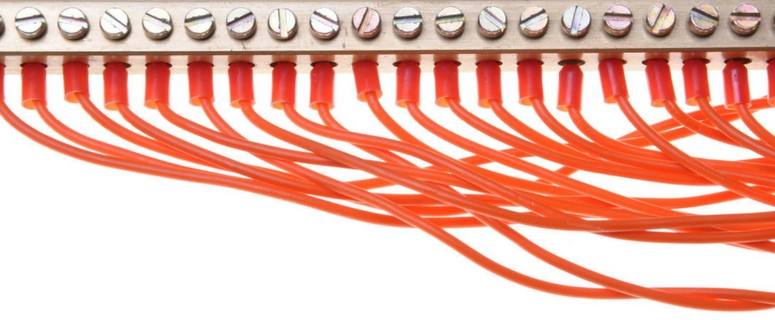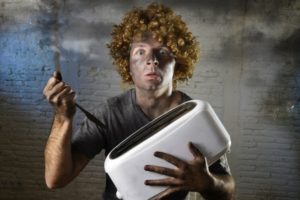Stay Safe with these Electrical Safety Practices

Working with electrical components should always be taken seriously. All electrical systems have the potential to cause harm if a person comes into contact with live parts, whether directly or indirectly via conduction.
Electricity can cause shocks, burns, and death. Even shocks can cause severe and permanent injury, and faulty appliances can lead to fires which can lead to property damage.
Homeowners in Port St. Lucie, FL could be subject to the consequences of faulty electric work and should be made aware of the risks and danger signs of electrical problems. Here are some safe electrical practices you should practice.
Dial Back the DIY Experiments
 Before you take on a do-it-yourself electrical project, ask yourself, is it worth risking my life or a loved one to save a few dollars?
Before you take on a do-it-yourself electrical project, ask yourself, is it worth risking my life or a loved one to save a few dollars?
Every project of this kind comes with a certain level of risk. You may be putting yourself and your property in harm's way while also jeopardizing your home's insurance policy.
Any major damage to your household could be accompanied by significant financial and emotional cost. There's also the possibility of making a mistake and ending up with a shoddy performance that's unsafe when completed.
Always think twice, even if you're confident in what you're doing, before starting a job. It may be worth hiring the services of a professional. After all, the consequences of not doing so could be fatal.
Always Inspect Plugs and Wires
It's always a good idea to inspect an electrical appliance's plugs and wires before beginning a project. Taking a moment to ensure everything is in order is crucial to building safety. Any damage could pose a serious hazard. Here are some things you should look out for:
 Ensure chords are free of kinks
Ensure chords are free of kinks- Check for exposed wires or cracks
- Inspect wall outlets for breaks or loose pins
- Plugs should be fully inserted with no part of the prongs exposed
- Make sure appliances are properly grounded
- One cord should be used per outlet to avoid overloading
- Cords should be far away from water sources
- Cords should be kept away or protected from foot traffic
If any plugs or wires don't meet with the above standards, you should pause the project immediately and conduct repairs or secure replacements.
Water and Electricity Don't Mix
 It may seem obvious, but you should be very careful when working on electrical appliances near sources of water, such as swimming pools and wet areas. Water is a very good conductor, and you come into contact with a wet surface that is exposed to a live wire, the current can pass through your body causing shock.
It may seem obvious, but you should be very careful when working on electrical appliances near sources of water, such as swimming pools and wet areas. Water is a very good conductor, and you come into contact with a wet surface that is exposed to a live wire, the current can pass through your body causing shock.
If you must work near water, however, be sure that any equipment you use has a safety switch and secure anything else that's not designed to work in wet conditions. Cords and other appliances must also be kept out of the water.
It's always better to be safe than sorry when handling electrical projects. Homeowners who are ever unsure about what they're doing should always consult a specialist before starting a project.









